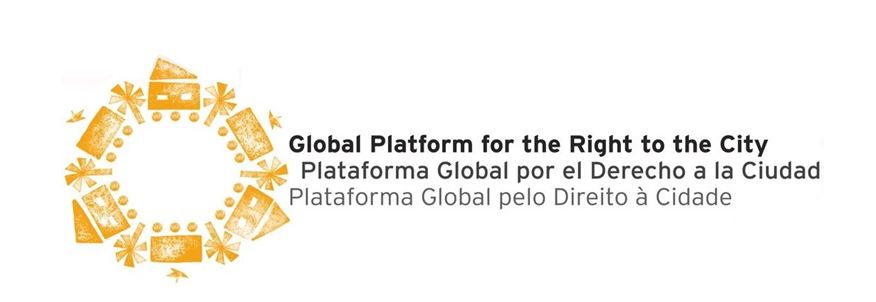
April 2nd
and 3rd 2016 – University of Barcelona, Spain
The Global Platform for the Right to the City (GPR2C) European Regional
Meeting was held on April 2nd and 3rd 2016 in Barcelona, Spain, gathering 74 participants from 19 different
countries – Belgium, Brazil, Canada, Croatia, France, Germany, Ghana, Greece,
Italy, Mexico, Montenegro, Morocco, Portugal, Serbia, Spain, Switzerland,
Taiwan, Tunisia, and United Kingdom. They came from different fields of work –
social movement representatives, human rights defenders, non-governmental
organizations, academics, public sector, foundations, and international
organizations among others. (See list of participants)
This was the second Regional Meeting organized by the GPR2C, being an
excellent opportunity to promote dialogue, cooperation and coordination among
organizations working on the right to the city in the region by creating a
greater value based in the exchange of information, the definition of common
objectives and the first steps of a common strategy in the region.
The event was also an opportunity to present the Global
Platform for the Right to the City and disseminate its principles, goals and
actions, strengthening regional alliances and inviting new organizations to
join it. The meeting also fostered discussion on the meaning of the right to
the city in the region; ways to promote an exchange experiences on the right to
the city as well as debate the Habitat III process and the inclusion of the
right to the city in the New Agenda and other regional public policies
In order to debate
the right to the city concept in the region and to define an European action
plan, a number of working groups discussed the following issues:
1) Democracy, the
city and the inhabitants; self-management and autonomous spaces.
2) Funding /
privatization of social / public housing and public spaces.
3) The Right to
Housing and the Right to the City, public services.
4) Competitive and
solidarity cities, social and solidarity economy; informal workers.
5) Forms of expulsion
and evictions, repression, refugees and migrants.
6) Food systems of
the city-region and urban / rural relations in the heart of the
Right to the City.
One of the lessons learned from these debates is the richness and
variety of initiatives existing in the region, which are highly differentiated,
according to the social, political, cultural and linguistic diversity of the
region. For instance, as explained in the research “Moving toward the Implementation of the
Right to the City in Latin America and Internationally“, in Europe we
can find three different concepts: “human rights in the city”, “rights of the
cities” and the “right to the city”. Participants also agreed on some common
points such as the understanding of the right to the city as a new collective
right for a new model of city, and the city as a common good. Now the challenge
is to create a common vision of this concept and to connect these specific
actions with the global struggles for the right to the city.
Many strategies emerged from this meeting, such as the coordination
among different struggles against the violations of the right to housing and to
the city (gentrification, privatization of public/social housing and public
spaces, homelessness, evictions, segregation, etc); promote initiatives of
popular laws and social and solidarity economy and awareness and training of
public officers, among many others.
